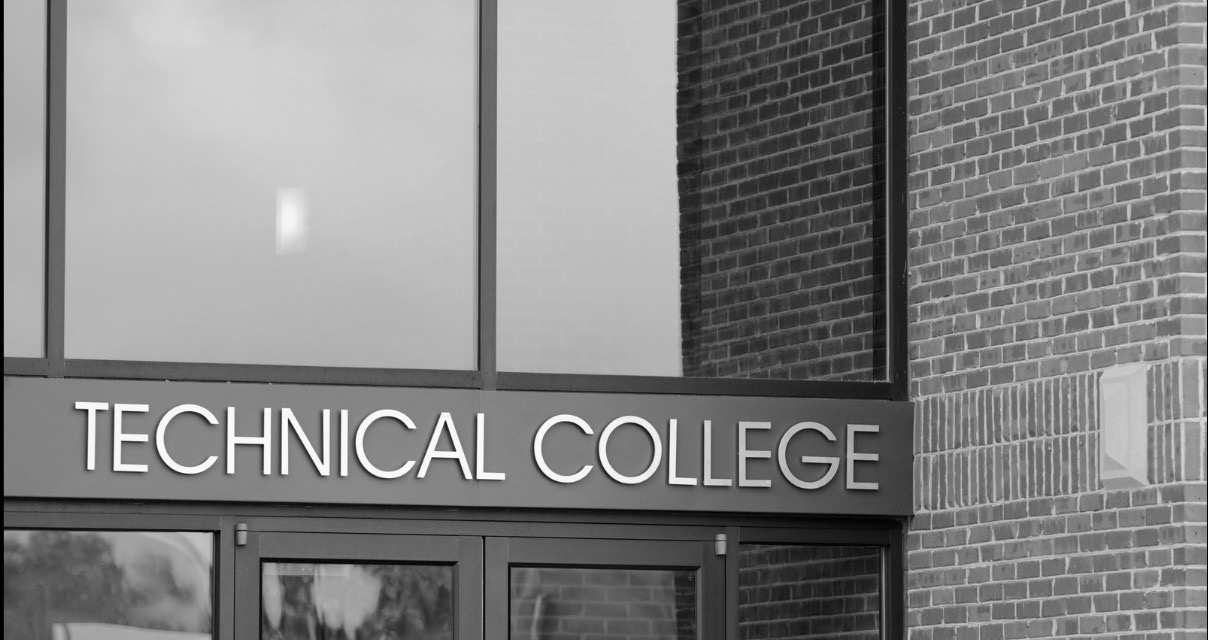Today, technology takes convenience and opportunity to an unprecedented level. You can video chat with a friend overseas, watch a TV show on your iPhone, purchase a pair of jeans online, or check your account balance without traveling to a bank.
Many of these developments are made possible by teams of software developers, product designers, and project managers at popular tech companies like Apple, Google, Amazon, and others. Unfortunately, these exciting and lucrative jobs in the tech industry are often inaccessible to motivated individuals who live in rural areas.
Goodland Tech is changing this trend by providing non-traditional learning opportunities in tech to people in rural and redeveloping communities so they can develop strong careers. Besides benefitting these students with rewarding careers, non-traditional learning helps businesses grow and enables communities to re-emerge.
But understanding how Goodland Tech is revolutionizing non-traditional learning requires a bit of context regarding today’s educational market.
The Problem with Traditional Education
With traditional education, educators provide knowledge to students using a standardized curriculum. Most educators teach traditional courses using the same format that has been used for years. Whereas that may have made sense historically, such an approach can be stifling for today’s students interested in cutting-edge technology. Those interested in practical learning may not be well-served by a curriculum emphasizing theoretical concepts.
While some schools have started to move to a more project-based learning process, many schools are sticking with traditional methods that may not register with some students. For example, a student who could thrive in software development might struggle in a class that revolves around lecture-based learning.
Traditional education also limits students’ creativity because they often have to memorize material for tests or learn concepts they will likely not apply during their careers. Some students learn better with practical, hands-on training than by sitting in a class for hours memorizing abstract, theoretical concepts to which they can’t relate.
Evolving Technologies, Higher Demand for Skills
As technology changes fast and global economies grow, certain skills will be in much higher demand than others. The future of work requires a workforce equipped with foundational skills like critical thinking, communication, self-awareness, and teamwork, which students can learn faster as they receive real-world, practical training via non-traditional learning opportunities like apprenticeships.
Non-traditional learning provides more opportunities to learn focused digital skills like programming, data literacy, and digital collaboration, which are essential to succeeding in a fast-paced job market. Digital proficiency has also increased employability, job satisfaction, and income potential.
In the tech industry, most of these digital skills are also transferable. Learning how to write code and build a mobile app can make you marketable whether you work in finance, cybersecurity, or education. If you gain these skills on the job while working with experienced professionals to solve complex problems, you’re more likely to gain valuable, lifelong work experience.
Goodland Tech's Approach
Although non-traditional learning is a much more straightforward path to providing practical, hands-on skills to learners than its traditional counterpart, it still takes time for the learners to grasp these skills.
So, how exactly does non-traditional learning for future tech professionals work in practice? Let’s discuss Goodland Tech’s approach to preparing eager students for fulfilling careers in tech.
A Four-Year Non-Traditional Curriculum
Goodland Tech’s program is spread out across four years of non-traditional learning, covering the following:
- Technical education: Once enrolled in the program, students start their first year learning technical skills and the foundational principles of software development at Goodland Tech’s partner college, Northwest Kansas Technical College (NWKTC). These skills are essential for students to become successful developers and build competitive applications for any business.
- Practical training: In the second year of training, students continue learning relevant technical skills and are placed in a practicum at businesses cutting across finance, cybersecurity, and technology sectors. During this phase, students are involved in real-world technology development at companies that will shape the future. Students can also specialize in one of five subspecialties, including back-end, front-end, dev ops, blockchain, and product design and project management.
- Apprenticeship: In their third year at Goodland Tech, learners start their paid full-time apprenticeships, potentially earning $40,000 to $65,000. The specific role each student will perform each day as an apprentice will depend on the sub-specialty chosen and the projects available when the apprenticeship starts.
- Employment: During the final year of learning at Goodland Tech, students enter the workforce as paid full-time employees. Upon completing the four-year program, students receive tuition reimbursement and can earn anywhere from $70,000 to $110,000 or more.
At the end of Goodland Tech’s four-year program, students will be equipped with high-demand tech skills to work at fast-growing businesses — and earning competitive industry salaries.
The Future of Education
Non-traditional learning holds immense potential to prepare motivated learners for lucrative, rewarding careers in emerging technologies like Web 3, distributed finance, AI, Crypto, and Bitcoin. Goodland Tech places students at top companies where they can learn the competitive, high-demand skills necessary to solve tomorrow’s challenges.
Why is this important for the future of education?
Aspiring students can gain industry-relevant skills and exposure to emerging technologies. All it takes is one opportunity to open the doors to a lifetime of rewarding career development opportunities.
These non-traditional learning opportunities are also faster and more innovative ways to train a developing workforce. According to McKinsey, work experience adds to the value of human capital by 40 to 60 percent. A real-world practicum or apprenticeship can upskill new professionals in a way that additional years of classroom learning simply can’t.
Goodland, Kansas harbors a community of highly intelligent individuals who possess remarkable technological prowess. However, companies are overlooking the opportunity to harness their talents for their technology teams.
Goodland proudly initiated the nation's first K-12 iPad program, equipping its residents with an abundance of technical knowledge and experience, rivaling even the young prodigies of Silicon Valley. What has remained absent until recently is a viable pathway for these skilled individuals to contribute to the emerging tech industry while remaining rooted in the communities they hold dear.
Fast-Track Your Career
Goodland Tech is so much more than an education or a job. It’s comprehensive learning that combines foundational knowledge with practical, hands-on skills and real-world experience working alongside industry experts.
That’s why Goodland Tech’s approach to education and workforce development trains learners to become rock-solid developers that will impact the business world.
Curious to learn how it all works and what the path to success at Goodland Tech looks like? We’re here to answer any questions you have.

